Order of Merit
The Order of Merit (French: Ordre du Mérite)[n 1] is an award, for notable work in the armed forces, science, art, literature, or for the promotion of culture. The order was set up in 1902, by Edward VII. Membership of the order is a personal gift of its Sovereign (the monarch does not take advice from politicians about who should be a member). The sovereign of the order is the reigning monarch of the Commonwealth realms. The award is limited to 24 living recipients at any one time from these countries, plus a small number of honorary members.[1]
| Order of Merit | |
|---|---|
.jpg.webp) | |
| Insignia of the Order of Merit presented to Dorothy Hodgkin, displayed in the Royal Society in London | |
| Awarded by the sovereign of the Commonwealth realms | |
| Type | Dynastic order |
| Royal house | House of Windsor |
| Motto | FOR MERIT |
| Eligibility | All living citizens of the Commonwealth realms |
| Awarded for | At the monarch's pleasure |
| Status | Currently awarded |
| Sovereign | Charles III |
| Grades (w/ post-nominals) | Member (OM) |
| Established | 1902 |
| Precedence | |
| Next (higher) | Dependent on state |
| Next (lower) | Dependent on state |
| Ribbon of the Order of Merit | |
Whilst all members can use the post-nominal letters OM and a medallion for life,[2] the Order of Merit's precedence, amongst other honours, differs between Commonwealth realms.
History
The award filled a gap in the honour system under Queen Victoria. It was only possible to reward people who held official positions. So, for example, T.H. Huxley could be rewarded because he had sat on Royal Commissions, but Charles Darwin and Alfred Russel Wallace held no official positions. Without question their work was as important as Huxley's, or more so. This kind of problem was known by Edward VII, and when he eventually became king, he drew up this new award which had no such limitations. The idea had been discussed before.
The first mention of a possible Order of Merit was made after the Battle of Trafalgar, in 1805. It was discussed in letters between the First Lord of the Admiralty, Lord Barham and Prime Minister William Pitt. Nothing came from the idea.[3] Later, Queen Victoria, her courtiers, and politicians,[4] all thought that a new order, based on the Prussian order Pour le Mérite, would make up for the insufficient recognition offered by the established honours system to achievement outside of public service, in realms such as art, music, literature, industry, and science.[3] Victoria's husband, Albert, Prince Consort, took an interest in the matter; he wrote in his diary that he met on 16 January 1844 with Robert Peel to discuss the "idea of institution of a civil Order of Merit" and three days later he talked with the Queen on the subject.[5] The concept did not wither and, on 5 January 1888, British prime minister the Marquess of Salisbury submitted to the Queen a draft constitution for an Order of Merit in Science and Art, consisting of one grade split into two branches of knighthood: the Order of Scientific Merit - for Knights of Merit in Science, with the post-nominal letters KMS— and the Order of Artistic Merit - for Knights of Merit in Art, with the post-nominal letters KMA. However, Sir Frederic Leighton, President of the Royal Academy, advised against the new order, primarily because of its selection process.[6]
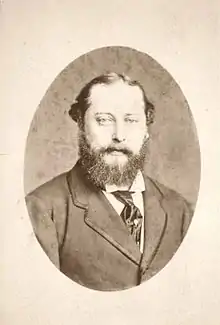
It was Victoria's son, Edward VII, who eventually founded the Order of Merit, on 26 June 1902— the date for which his coronation had been originally planned[7]— as a means to acknowledge "exceptionally meritorious service in Our Navy and Our Army, or who may have rendered exceptionally meritorious service towards the advancement of Art, Literature and Science";[8] all modern aspects of the order were established under his direction, including the division for military figures.[2] From the outset, prime ministers attempted to propose candidates or lobbied to influence the monarch's decision on appointments, but the Royal Household adamantly guarded information about potential names.[2] After 1931, when the Commonwealth of Nations came into being and the former Dominions of the British Empire became independent states, equal in status to the UK,[9][10] the Order of Merit remained an honour open to all the King's realms; thus, as with the monarch who conferred it, the order ceased to be purely British.[1][11]
From the start, the order has been open to women, Florence Nightingale being the first woman to receive the honour, in 1907. Several people have not taken the honour, such as Rudyard Kipling, A. E. Housman, and George Bernard Shaw. To date, Prince Philip, Duke of Edinburgh, remains the youngest person ever inducted into the Order of Merit, having been admitted by Queen Elizabeth II, in 1968, when he was 47 years of age.[2]
Eligibility and appointment
All citizens of the Commonwealth realms are able to be given the Order of Merit. There can only be 24 living people in the order at any given time, not including honorary appointees, and new members are personally selected by the reigning monarch of the 16 realms, presently Queen Elizabeth II, with the help of her private secretaries;[2] the order has thus been described as "quite possibly, the most prestigious honour one can receive on planet Earth."[12] Within the limited membership is a designated military division, with its own unique insignia; though it has not been abolished, it is currently unused, the Earl Mountbatten of Burma having been the last person so honoured.[2] Honorary members form another group, to which there is no limit, though such appointments are rare; individuals from countries in the Commonwealth of Nations that are not headed by Elizabeth II are considered foreigners, and thus are granted only honorary admissions, such as Nelson Mandela (South Africa) and Mother Teresa (India).[1]
On admission into the Order of Merit, members can use the post-nominal letters OM, and have the badge of the order, consisting of a golden crown from which is suspended a red enamelled cross, itself centred by a disk of blue enamel, surrounded by a gold laurel wreath, and bearing in gold lettering the words FOR MERIT;[13] the insignia for the military grouping has a pair of crossed swords behind the central disk. The ribbon of the Order of Merit is divided into two stripes of red and blue; men wear their badges on a neck ribbon, while women carry theirs on a ribbon bow pinned to the left shoulder, and aides-de-camp may wear the insignia on their aiguillettes.[13] Since 1991, the insignia is to be given back upon the recipient's death.[14]
Current members
- Sovereign: King Charles III
- Members
.svg.png.webp) The Lord Foster of Thames Bank OM appointed 25 November 1997 [15]
The Lord Foster of Thames Bank OM appointed 25 November 1997 [15].svg.png.webp) Sir Roger Penrose OM FRS appointed 9 May 2000 [15]
Sir Roger Penrose OM FRS appointed 9 May 2000 [15].svg.png.webp) Sir Tom Stoppard OM CBE FRSL appointed 9 May 2000 [15]
Sir Tom Stoppard OM CBE FRSL appointed 9 May 2000 [15].svg.png.webp) The Lord Rothschild OM GBE CVO appointed 28 October 2002 [15]
The Lord Rothschild OM GBE CVO appointed 28 October 2002 [15].svg.png.webp) Sir David Attenborough OM CH CVO CBE FRS FSA appointed 10 June 2005 [15]
Sir David Attenborough OM CH CVO CBE FRS FSA appointed 10 June 2005 [15].svg.png.webp) The Lord Eames OM appointed 13 June 2007 [15]
The Lord Eames OM appointed 13 June 2007 [15].svg.png.webp) Sir Tim Berners-Lee OM KBE FRS FREng appointed 13 June 2007 [15]
Sir Tim Berners-Lee OM KBE FRS FREng appointed 13 June 2007 [15].svg.png.webp) The Lord Rees of Ludlow OM FRS FMedSci FREng appointed 13 June 2007[15]
The Lord Rees of Ludlow OM FRS FMedSci FREng appointed 13 June 2007[15]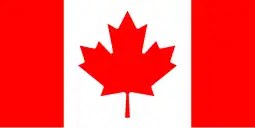 Jean Chrétien OM CC PC QC appointed 13 July 2009 [16]
Jean Chrétien OM CC PC QC appointed 13 July 2009 [16].svg.png.webp) Neil MacGregor OM AO FSA appointed 4 November 2010 [17]
Neil MacGregor OM AO FSA appointed 4 November 2010 [17].svg.png.webp) David Hockney OM CH appointed 1 January 2012 [18]
David Hockney OM CH appointed 1 January 2012 [18].svg.png.webp) John Howard OM AC appointed 1 January 2012 [18]
John Howard OM AC appointed 1 January 2012 [18].svg.png.webp) Sir Simon Rattle OM CBE appointed 1 January 2014 [19]
Sir Simon Rattle OM CBE appointed 1 January 2014 [19].svg.png.webp) Sir Magdi Yacoub OM FRS appointed 1 January 2014 [19]
Sir Magdi Yacoub OM FRS appointed 1 January 2014 [19].svg.png.webp) The Lord Darzi of Denham OM KBE PC FRS FMedSci FRCS FREng appointed 31 December 2015 [20]
The Lord Darzi of Denham OM KBE PC FRS FMedSci FRCS FREng appointed 31 December 2015 [20].svg.png.webp) Dame Ann Dowling OM DBE FRS FREng appointed 31 December 2015 [20]
Dame Ann Dowling OM DBE FRS FREng appointed 31 December 2015 [20].svg.png.webp) Sir James Dyson OM CBE FRS FREng appointed 31 December 2015 [20]
Sir James Dyson OM CBE FRS FREng appointed 31 December 2015 [20].svg.png.webp) Sir David Adjaye OM OBE appointed 11 November 2022[21]
Sir David Adjaye OM OBE appointed 11 November 2022[21].svg.png.webp) Dame Elizabeth Anionwu OM DBE appointed 11 November 2022[21]
Dame Elizabeth Anionwu OM DBE appointed 11 November 2022[21].svg.png.webp) The Baroness Benjamin OM DBE appointed 11 November 2022[21]
The Baroness Benjamin OM DBE appointed 11 November 2022[21] Margaret MacMillan OM CC CH appointed 11 November 2022[21]
Margaret MacMillan OM CC CH appointed 11 November 2022[21].svg.png.webp) Sir Paul Nurse OM CH FRS appointed 11 November 2022[21]
Sir Paul Nurse OM CH FRS appointed 11 November 2022[21].svg.png.webp)
 Venkatraman Ramakrishnan OM FRS appointed 11 November 2022[21]
Venkatraman Ramakrishnan OM FRS appointed 11 November 2022[21]- Vacant[22]
- Honorary members
(none)
Precedence in each realm
As the Order of Merit is open to the citizens of sixteen different countries, each with their own system of orders, decorations, and medals, the order's place of precedence varies from country to country. While in the United Kingdom, members rank below Knights and Dames Grand Cross of the Order of the Bath, it has been claimed by Stanley Martin, in his book The Order of Merit 1902-2002: One Hundred Years of Matchless Honour, that the Order of Merit is actually the pinnacle of the British honours system.[23] Similarly, though it was not listed in the Canadian order of precedence for honours, decorations, and medals until December 2010,[24] except relating to those who were appointed to the order prior to 1 June 1972,[25] both Christopher McCreery, an expert on Canadian honours and secretary to the Lieutenant Governor of Nova Scotia, and Rafal Heydel-Mankoo, an editor of Burke's Peerage, stated that the Order of Merit was the highest civilian award for merit a Canadian could receive.[26][27][28]
Some orders of precedence are as follows:
| Country | Preceding | Following | |
Order of precedence | Knight/Dame Grand Cross of the Most Honourable Order of the Bath (GCB) | Knight/Dame of the Order of Australia (AK/AD) | |
Order of precedence | Cross of Valour (CV) | Companion of the Order of Canada (CC) | |
Order of precedence | Knight/Dame Grand Cross of the Most Honourable Order of the Bath (GCB) | Member of the Order of New Zealand (ONZ)[29] | |
Order of precedence | Knight/Dame Grand Cross of the Most Honourable Order of the Bath (GCB) | Knight/Dame Commander of the Most Honourable Order of the Bath (KCB/DCB) | |
Past members
Substantive members


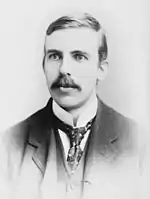
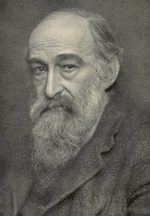
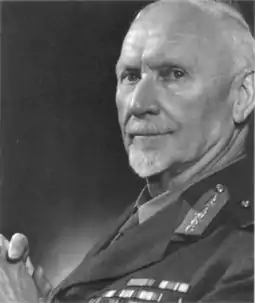
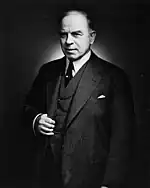
| Countries[n 2] | Name | Date of appointment | Date of death | |
| 1.[n 3] | The Earl Roberts | 26 June 1902 | 14 November 1914 | |
| 2. | The Viscount Wolseley | 26 June 1902 | 25 March 1913 | |
| 3. | The Earl Kitchener | 26 June 1902 | 5 June 1916 | |
| 4. | The Lord Rayleigh | 26 June 1902 | 30 June 1919 | |
| 5. | The Lord Kelvin | 26 June 1902 | 17 December 1907 | |
| 6. | The Lord Lister | 26 June 1902 | 10 February 1912 | |
| 7. | Sir Henry Keppel | 26 June 1902 | 17 January 1904 | |
| 8. | The Viscount Morley of Blackburn | 26 June 1902 | 23 September 1923 | |
| 9. | William Edward Hartpole Lecky | 26 June 1902 | 22 October 1903 | |
| 10. | Sir Edward Hobart Seymour | 26 June 1902 | 2 March 1929 | |
| 11. | Sir William Huggins | 26 June 1902 | 12 May 1910 | |
| 12. | George Frederic Watts | 26 June 1902 | 1 July 1904 | |
| 13. | Sir George Stuart White | 30 June 1905 | 24 June 1912 | |
| 14. | The Lord Fisher | 30 June 1905 | 10 July 1920 | |
| 15. | Sir Richard Claverhouse Jebb | 30 June 1905 | 9 December 1905 | |
| 16. | Sir Lawrence Alma-Tadema | 30 June 1905 | 25 June 1912 | |
| 17. | George Meredith | 30 June 1905 | 18 May 1909 | |
| 18. | William Holman Hunt | 30 June 1905 | 7 September 1910 | |
| 22. | The Earl of Cromer | 29 June 1906 | 29 January 1917 | |
| 23. | The Viscount Bryce | 11 February 1907 | 22 January 1922 | |
| 24. | Sir Joseph Dalton Hooker | 30 June 1907 | 10 December 1911 | |
| 25. | Florence Nightingale | 12 May 1907 | 13 August 1910 | |
| 26. | Henry Jackson | 26 June 1908 | 25 September 1921 | |
| 27. | Alfred Russel Wallace | 26 June 1908 | 7 November 1913 | |
| 28. | Sir William Crookes | 8 July 1910 | 4 April 1919 | |
| 29. | Thomas Hardy | 8 July 1910 | 11 January 1928 | |
| 30. | Sir George Otto Trevelyan | 19 June 1911 | 17 August 1928 | |
| 31. | Sir Edward William Elgar | 19 June 1911 | 23 February 1934 | |
| 32. | Sir Arthur Knyvet Wilson | 8 March 1912 | 25 May 1921 | |
| 33. | Sir Joseph John Thomson | 15 March 1912 | 30 August 1940 | |
| 34. | Sir Archibald Geikie | 1 January 1914 | 10 November 1924 | |
| 35. | The Earl of Ypres | 3 December 1914 | 22 May 1925 | |
| 36. | The Viscount Haldane | 26 May 1915 | 19 August 1928 | |
| 37. | Henry James | 1 January 1916 | 28 February 1916 | |
| 38. | The Earl Jellicoe | 31 May 1916 | 20 November 1935 | |
| 39. | The Earl of Balfour | 3 June 1916 | 19 March 1930 | |
| 41. | The Earl Beatty | 3 June 1919 | 11 March 1936 | |
| 42. | The Earl Haig | 3 June 1919 | 29 January 1928 | |
| 44. | The Earl Lloyd-George | 5 August 1919 | 26 March 1945 | |
| 45. | Sir James Matthew Barrie | 2 January 1922 | 19 June 1937 | |
| 46. | Francis Herbert Bradley | 3 June 1924 | 18 September 1924 | |
| 47. | Sir Charles Scott Sherrington | 3 June 1924 | 4 March 1952 | |
| 48. | Sir James George Frazer | 1 January 1925 | 7 May 1941 | |
| 49. | The Lord Rutherford of Nelson | 1 January 1925 | 19 October 1937 | |
| 50. | Sir Charles Algernon Parsons | 3 June 1927 | 11 February 1931 | |
| 51. | Sir George Abraham Grierson | 4 June 1928 | 9 March 1941 | |
| 52. | Robert Seymour Bridges | 3 June 1929 | 21 April 1930 | |
| 53. | John Galsworthy | 3 June 1929 | 31 January 1933 | |
| 54. | Samuel Alexander | 3 June 1930 | 13 September 1938 | |
| 55. | Montague Rhodes James | 3 June 1930 | 12 June 1936 | |
| 56. | George Macaulay Trevelyan | 3 June 1930 | 21 July 1962 | |
| 57. | Sir Charles Edward Madden | 1 January 1931 | 5 June 1935 | |
| 58. | Philip Wilson Steer | 1 January 1931 | 18 March 1942 | |
| 59. | Sir William Henry Bragg | 3 June 1931 | 10 March 1942 | |
| 60. | John William Mackail | 1 January 1935 | 13 December 1945 | |
| 61. | John Edward Masefield | 3 June 1935 | 12 May 1967 | |
| 62. | Ralph Vaughan Williams | 3 June 1935 | 26 August 1958 | |
| 63. | Sir Frederick Gowland Hopkins | 3 June 1935 | 16 May 1947 | |
| 64. | The Lord Chetwode | 1 January 1936 | 6 July 1950 | |
| 65. | Herbert Albert Laurens Fisher | 1 February 1937 | 18 April 1940 | |
| 66. | The Lord Baden-Powell | 11 May 1937 | 8 January 1941 | |
| 67. | Sir Arthur Stanley Eddington | 9 June 1938 | 22 November 1944 | |
| 68. | The Lord Chatfield | 2 January 1939 | 15 November 1967 | |
| 69. | Sir James Hopwood Jeans | 2 January 1939 | 16 September 1946 | |
| 70. | The Lord Newall | 29 October 1940 | 30 November 1963 | |
| 71. | George Gilbert Aimé Murray | 1 January 1941 | 20 May 1957 | |
| 72. | Sir Edwin Landseer Lutyens | 1 January 1942 | 1 January 1944 | |
| 73. | Augustus Edwin John | 11 June 1942 | 31 October 1961 | |
| 74. | The Lord Adrian | 11 June 1942 | 4 August 1977 | |
| 75. | Sir William Searle Holdsworth | 1 January 1943 | 2 January 1944 | |
| 76. | Sir Alfred Dudley Pickman Rogers Pound | 3 September 1943 | 21 October 1943 | |
| 77. | The Lord Passfield | 8 June 1944 | 13 October 1947 | |
| 78. | Sir Henry Hallett Dale | 8 June 1944 | 23 July 1968 | |
| 79. | Sir Giles Gilbert Scott | 8 June 1944 | 8 February 1960 | |
| 80. | Alfred North Whitehead | 1 January 1945 | 30 December 1947 | |
| 82. | Sir Winston Leonard Spencer Churchill | 1 January 1946 | 24 January 1965 | |
| 83. | The Viscount Portal of Hungerford | 1 January 1946 | 22 April 1971 | |
| 84. | The Viscount Alanbrooke | 13 June 1946 | 17 June 1963 | |
| 85. | The Viscount Cunningham of Hyndhope | 13 June 1946 | 12 June 1963 | |
| 86. | The Earl of Halifax | 13 June 1946 | 23 December 1959 | |
| 87. | Jan Christiaan Smuts | 1 January 1947 | 11 September 1950 | |
| 89. | William Lyon Mackenzie King | 17 November 1947 | 22 July 1950 | |
| 90. | Thomas Stearns Eliot | 1 January 1948 | 4 January 1965 | |
| 91. | Sir Robert Robinson | 9 June 1949 | 8 February 1975 | |
| 92. | The Earl Russell | 9 June 1949 | 2 February 1970 | |
| 93. | Sir Alexander George Montagu Cadogan | 1 January 1951 | 9 July 1968 | |
| 94. | The Viscount Trenchard | 1 January 1951 | 10 February 1956 | |
| 95. | George Edward Moore | 7 June 1951 | 24 October 1958 | |
| 96. | The Earl Attlee | 5 November 1951 | 8 October 1967 | |
| 97. | Wilder Graves Penfield | 1 January 1953 | 5 April 1976 | |
| 98. | Walter John de la Mare | 1 June 1953 | 22 June 1956 | |
| 100. | The Lord Hailey | 31 May 1956 | 1 June 1969 | |
| 101. | Sir John Douglas Cockcroft | 1 January 1957 | 18 September 1967 | |
| 102. | The Viscount Waverley | 8 December 1957 | 4 January 1958 | |
| 103. | Sir Frank Macfarlane Burnet | 12 June 1958 | 31 August 1985 | |
| 104. | The Viscount Samuel | 21 November 1958 | 2 February 1963 | |
| 105. | The Earl Alexander of Tunis | 23 April 1960 | 16 June 1969 | |
| 106. | Sir Cyril Norman Hinshelwood | 23 April 1960 | 9 October 1967 | |
| 107. | Graham Sutherland | 23 April 1960 | 17 February 1980 | |
| 108. | Sir Geoffrey de Havilland | 23 November 1962 | 21 May 1965 | |
| 109. | Sir Basil Urwin Spence | 23 November 1962 | 19 November 1976 | |
| 110. | Sir Owen Dixon | 29 May 1963 | 7 July 1972 | |
| 112. | George Peabody Gooch | 16 August 1963 | 31 August 1968 | |
| 113. | Henry Spencer Moore | 16 August 1963 | 31 August 1986 | |
| 114. | The Lord Britten | 23 March 1965 | 4 December 1976 | |
| 115. | Dorothy Mary Hodgkin | 23 March 1965 | 29 July 1994 | |
| 116. | The Earl Mountbatten of Burma | 15 July 1965 | 27 August 1979 | |
| 117. | The Lord Florey | 15 July 1965 | 21 February 1968 | |
| 118. | The Lord Blackett | 20 November 1967 | 13 July 1974 | |
| 119. | Sir William Turner Walton | 20 November 1967 | 8 March 1983 | |
| 120. | Benjamin Lauder Nicholson | 23 April 1968 | 6 February 1982 | |
| 121. | The Lord Zuckerman | 23 April 1968 | 1 April 1993 | |
| 123. | Edward Morgan Forster | 1 January 1969 | 7 June 1970 | |
| 124. | Malcolm John MacDonald | 14 July 1969 | 11 January 1981 | |
| 125. | The Lord Penney | 14 July 1969 | 3 March 1991 | |
| 126. | Sir Geoffrey Ingram Taylor | 14 July 1969 | 27 June 1975 | |
| 127. | Dame Cicely Veronica Wedgwood | 14 July 1969 | 9 March 1997 | |
| 128. | John Cawte Beaglehole | 21 March 1970 | 10 October 1971 | |
| 129. | Lester Bowles Pearson | 20 May 1971 | 27 December 1972 | |
| 130. | Sir Isaiah Berlin | 20 May 1971 | 5 November 1997 | |
| 131. | Sir George Robert Freeman Edwards | 20 May 1971 | 2 March 2003 | |
| 132. | Sir Alan Lloyd Hodgkin | 17 April 1973 | 20 December 1998 | |
| 133. | Paul Adrien Maurice Dirac | 17 April 1973 | 20 October 1984 | |
| 134. | The Earl of Stockton | 2 April 1976 | 29 December 1986 | |
| 135. | The Lord Hinton of Bankside | 2 April 1976 | 22 June 1983 | |
| 136. | The Lord Clark | 2 April 1976 | 21 May 1983 | |
| 137. | Sir Ronald Syme | 2 April 1976 | 4 September 1989 | |
| 138. | The Lord Todd | 24 October 1977 | 10 January 1997 | |
| 139. | The Lord Franks | 24 October 1977 | 15 October 1992 | |
| 140. | Sir Frederick William Mallandaine Ashton | 24 October 1977 | 18 October 1988 | |
| 141. | John Boynton Priestley | 24 October 1977 | 14 August 1984 | |
| 142. | The Lord Olivier | 6 February 1981 | 11 July 1989 | |
| 143. | Sir Peter Brian Medawar | 6 February 1981 | 2 October 1987 | |
| 144. | The Lord Cheshire | 6 February 1981 | 31 July 1992 | |
| 147. | Sir Sidney Robert Nolan | 11 November 1983 | 28 November 1992 | |
| 148. | Sir Michael Kemp Tippett | 11 November 1983 | 8 January 1998 | |
| 150. | Henry Graham Greene | 11 February 1986 | 3 April 1991 | |
| 152. | Sir Frank Whittle | 11 February 1986 | 9 August 1996 | |
| 153. | The Lord Menuhin | 25 February 1987 | 12 March 1999 | |
| 154. | Sir Ernst Hans Josef Gombrich | 15 February 1988 | 3 November 2001 | |
| 155. | Max Ferdinand Perutz | 15 February 1988 | 6 February 2002 | |
| 156. | Dame Cicely Mary Saunders | 30 November 1989 | 14 July 2005 | |
| 157. | The Lord Porter of Luddenham | 30 November 1989 | 31 August 2002 | |
| 158. | Margaret Thatcher | 7 December 1990 | 8 April 2013 | |
| 159. | Dame Joan Alston Sutherland | 29 November 1991 | 10 October 2010 | |
| 160. | Francis Harry Compton Crick | 27 November 1991 | 28 July 2004 | |
| 161. | Dame Ninette de Valois | 17 November 1992 | 8 March 2001 | |
| 163. | The Lord Jenkins of Hillhead | 6 December 1993 | 5 January 2003 | |
| 167. | Sir Arthur John Gielgud | 9 December 1996 | 21 May 2000 | |
| 168. | The Lord Denning | 25 November 1997 | 5 March 1999 | |
| 170. | Sir Denis Eric Rooke | 25 November 1997 | 2 September 2008 | |
| 171. | Edward James Hughes | 10 August 1998 | 28 October 1998 | |
| 172. | George Basil Hume | 25 May 1999 | 17 June 1999 | |
| 173. | Sir James Whyte Black | 9 May 2000 | 22 March 2010 |
Honorary members
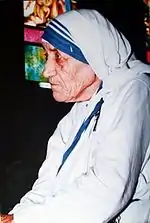
| Countries[30] | Name | Date of appointment | Date of death | |
| 19. | Prince Yamagata Aritomo | 21 February 1906 | 1 February 1922 | |
| 20. | Prince Ōyama Iwao | 21 February 1906 | 10 December 1916 | |
| 21. | Marquess Tōgō Heihachirō | 21 February 1906 | 30 May 1934 | |
| 40. | Ferdinand Foch | 29 November 1918 | 20 March 1929 | |
| 43. | Joseph Jacques Césaire Joffre | 26 June 1919 | 3 January 1931 | |
| 81. | Dwight David Eisenhower | 12 June 1945 | 28 March 1969 | |
| 88. | John Gilbert Winant | 1 January 1947 | 3 November 1947 | |
| 99. | Albert Schweitzer | 25 February 1955 | 4 September 1965 | |
| 111. | Sir Sarvepalli Radhakrishnan | 12 June 1963 | 17 April 1975 | |
| 149. | Agnesë Gonxhe Bojaxhiu | 18 November 1983 | 5 September 1997 |
Notes
- For use in Canada, which uses French and English as official languages at federal level.
- Flags denote country of origin and country or countries of later residence, respectively.
- The number shown is the individual's place in the wider order of appointment since the Order of Merit's inception.
References
- The Royal Household. "The Queen and the UK > Queen and Honours > Order of Merit". Queen's Printer. Archived from the original on 18 July 2009. Retrieved 28 July 2009.
- Jackson, Michael D. (2007). "The Order of Merit 1902-2002: One Hundred Years of Matchless Honour" (PDF). Canadian Monarchist News. Toronto: Monarchist League of Canada. p. 15. Archived from the original (PDF) on 25 June 2008. Retrieved 28 July 2009.
- Martin 2007, p. 11
- Martin 2007, p. 12
- Martin 2007, p. 13
- Martin 2007, pp. 18–20
- Martin 2007, p. 1
- Mountbatten, Philip (2007). "Foreword". Written at London. In Martin, Stanley (ed.). The Order of Merit: One Hundred Years of Matchless Honour. New York: I.B. Tauris & Co. Ltd. pp. xvii. ISBN 978-1-86064-848-9. Archived from the original on 25 November 2021. Retrieved 14 October 2009.
- Arthur, Balfour (November 1926). Imperial Conference 1926: Inter-Imperial Relations Committee Report (PDF). London: King's Printer. p. 1. E (I.R./26) Series. Archived from the original (PDF) on 5 July 2016. Retrieved 29 July 2009.
- George V (11 December 1931). "The Statute of Westminster, 1931". 2.2. Westminster: King's Printer. Archived from the original on 12 May 2009. Retrieved 29 July 2009.
{{cite journal}}: Cite journal requires|journal=(help) - "Chrétien says Order of Merit 'humbling experience'". CTV. 14 July 2009. Archived from the original on 31 July 2012. Retrieved 29 July 2009.
- Editorial Board (15 July 2009). "Order Worthy?". National Post. Retrieved 29 July 2009.
- Clarence House. "For Children > Medals and Uniforms > Medals > Picture 4: The Order of Merit". Queen's Printer. Archived from the original on 1 March 2009. Retrieved 29 July 2009.
- Martin 2007, p. 56
- The Royal Household. "The Queen and the UK > Queen and Honours > Order of Merit > List of current members". Queen's Printer. Archived from the original on 16 July 2009. Retrieved 15 August 2009.
- "Queen gives Chrétien Order of Merit". CBC. 13 July 2009. Archived from the original on 17 July 2009. Retrieved 15 August 2009.
- Buckingham Palace. "Mr Neil MacGregor appointed to the Order of Merit, 4 November 2010". The Royal Household. Archived from the original on 29 February 2012. Retrieved 4 November 2010.
- "Appointments to the Order of Merit". Archived from the original on 7 January 2012. Retrieved 1 January 2012.
- "New Year Honours 2013: The Full List". The Guardian. 30 December 2013. Archived from the original on 11 January 2014. Retrieved 30 December 2013.
- "New Year's Honours 2016". 30 December 2015. Archived from the original on 30 December 2015. Retrieved 3 January 2016.
- Dunn, Charlotte (2022-11-11). "New Appointments to the Order of Merit". The Royal Family. Retrieved 2023-01-18.
- "Baroness Boothroyd, first female Speaker of the House of Commons, has died aged 93". Sky News. Retrieved 2023-02-28.
- Martin, Stanley (2007). "The Order of Merit 1902-2002: One Hundred Years of Matchless Honour". Written at London and New York. In Jackson, Michael D. (ed.). The Order of Merit 1902-2002: One Hundred Years of Matchless Honour (PDF). Vol. Summer 2007. Toronto: Monarchist League of Canada. p. 15. Archived from the original (PDF) on 25 June 2008. Retrieved 28 July 2009.
{{cite book}}:|periodical=ignored (help) - Government of Canada (8 December 2010), "Order of Merit (O.M.) Order", Canada Gazette, 144 (25), Queen's Printer for Canada, SI/2010-88, archived from the original on 19 December 2010, retrieved 10 December 2010
- Office of the Governor General of Canada. "Honours > Order of Precedence". Queen's Printer for Canada. Archived from the original on 9 October 2006. Retrieved 24 July 2009.
- McCreery, Christopher (2005). The Order of Canada: Its Origins, History and Development. Toronto: University of Toronto Press. ISBN 0-8020-3940-5.
- Taber, Jane (15 July 2009). "Chrétien 'thrilled' by rare honour from Queen". The Globe and Mail. Archived from the original on 17 July 2009. Retrieved 24 July 2009.
- Heydel-Mankoo, Rafal (2009). "Letter". In The Monarchist (ed.). A Letter from Burke's Peerage and Gentry. London: The Monarchist (published 25 July 2009). Archived from the original on 7 August 2010. Retrieved 26 July 2009.
{{cite book}}:|periodical=ignored (help) - New Zealand Defence Force. "Medals Home > general medals information > order of wear". Queen's Printer for New Zealand. Archived from the original on 24 February 2021. Retrieved 30 July 2009.
- name=Flags
References
- Martin, Stanley (2007). The Order of Merit: One Hundred Years of Matchless Honour. New York: I.B. Tauris & Co. Ltd. ISBN 978-1-86064-848-9.